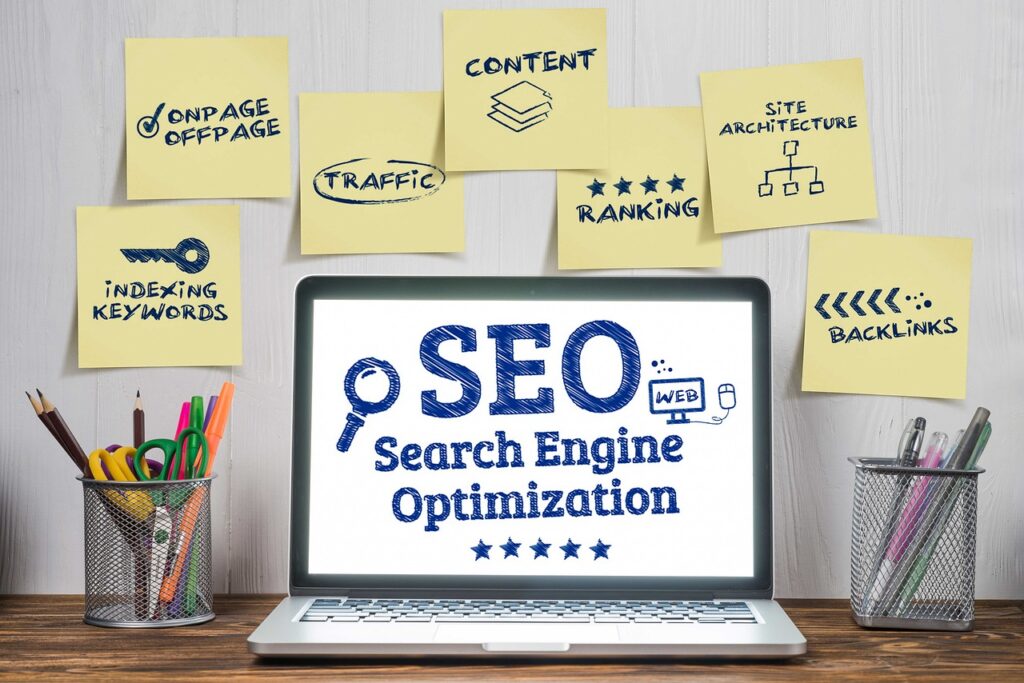Introduction to on-page optimization:
In today’s digital landscape, mastering on-page optimization is crucial for achieving SEO success. By understanding and implementing effective on-page strategies, you can significantly improve the visibility and ranking of your website in search engine results pages (SERPs). In this comprehensive guide, we will delve into the key techniques and best practices to optimize your web pages for maximum SEO impact.
I. Understanding On-Page Optimization
On-page optimization is the process of optimizing individual web pages to rank higher and attract organic traffic. By focusing on a specific keyword, such as “on-page optimization,” you can strategically incorporate it throughout your content to enhance its relevance and visibility to search engines.
II. Keyword Research:
The Foundation of On-Page Before diving into on page optimization, thorough keyword research is essential. Start by conducting in-depth research on your target keyword, “on-page optimization,” using tools like Google Keyword Planner or SEMrush. Explore related long-tail keywords and phrases that align with your topic. These keywords will serve as the foundation for optimizing your content.
III. Crafting Compelling Titles and Headings
When optimizing your web pages, including the focus keyword in your title and headings is crucial. Craft a compelling title, such as “Mastering On-Page Optimization: The Key to SEO Success,” that accurately represents your content while incorporating the focus keyword. Similarly, use the focus keyword in subheadings to structure your content and provide a clear hierarchy for search engines and readers.
IV. Creating High-Quality and Keyword-Rich
Content To optimize your web pages effectively, create high-quality and keyword-rich content centered around the focus keyword. In this case, ensure that your content is informative, engaging, and valuable for readers seeking information about on page optimization. Incorporate the focus keyword naturally throughout the content, including in the introductory paragraph, body paragraphs, and conclusion.
V. Optimizing URLs and Metadata
Optimize your web page’s URL structure to include the focus keyword. For instance, a well-optimized URL could be “example.com/on-page-optimization.” Additionally, focus on optimizing metadata elements such as meta titles and meta descriptions. Craft an enticing meta title that includes the focus keyword and accurately represents your content. Similarly, create a compelling meta description that entices users to click through to your web page from the search results.
VI. Enhancing User Experience and Engagement
A positive user experience is vital for SEO success. Optimize your web page’s layout, readability, and visual elements to enhance user experience. Incorporate the focus keyword in a way that maintains natural flow and readability. Additionally, encourage user engagement by including clear calls-to-action, providing opportunities for social sharing, and enabling comments on your web page.
VII. Internal and External Linking Strategies
Incorporate internal links within your web page’s content to connect related pages on your website. This enhances website navigation and helps search engines understand the structure of your website. When appropriate, include external links to reputable sources that provide additional context and value to your content. These linking strategies strengthen the relevance and credibility of your web page.
VIII. Measuring and Tracking On-Page Optimization
Regularly measure and track the performance of your optimized web pages using tools like Google Analytics and Search Console. Monitor keyword rankings, organic traffic, bounce rates, and user behavior. Analyze the data to identify areas for improvement and make necessary adjustments to your page optimization strategy. For off-page seo guest posting is very immportant. Visit blogsnark, for guest posting and best SEO service.
Conclusion:
Mastering optimization of on-page is a critical step toward achieving SEO success. By focusing on the target keyword “on-page optimization” and implementing effective techniques, such as conducting keyword research, crafting compelling titles and headings, creating high-quality content, optimizing URLs and metadata, enhancing user experience, and employing strategic linking, you can significantly improve your website’s visibility and rankings in search engine results. Stay diligent, monitor performance, and continuously refine your on-page optimization efforts to achieve long-term SEO success.
You may also like
-
Classified Websites in India: A Digital Marketplace for All
-
Why Sod Installation is the Quickest Way to a Beautiful Lawn?
-
The Role of Statutes and Case Law in Policy Limit Access
-
Setting Up a Home Theater with LG CineBeam Q The Ultimate Guide
-
Business Listing Sites in USA: 2025 Guide for Better Online Visibility

